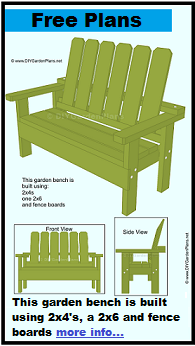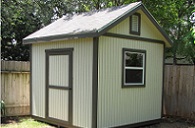Tips for an Organic Garden
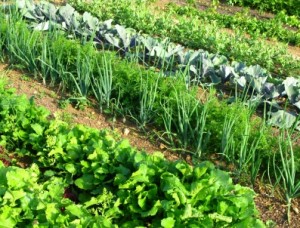 Over
the last several years more attention is being paid to the benefits
of eating organic. This is because organic has a much higher nutritional
content than produce grown with chemical filled fertilizer and pesticides.
The lack of chemicals is another motivator for many individuals to go
organic.
Over
the last several years more attention is being paid to the benefits
of eating organic. This is because organic has a much higher nutritional
content than produce grown with chemical filled fertilizer and pesticides.
The lack of chemicals is another motivator for many individuals to go
organic.
While organic vegetables produce is a healthier option than standard produced, it is an expensive option for those on a budget—leading many individuals to grow their own produce. Below are a few tips to consider when organic gardening.
Tip #1 They Are Easier To Maintain Than Flowerbeds
Many families who are looking for ways to increase the amount of organic
produce they have access to, without breaking the bank, are turning
to organic gardening. Organic gardens can be packed full of your favorite
vegetables, and are surprisingly easier to care for them flower gardens.
While flowers need to be maintained, most vegetables thrive with minimal
maintenance.
Tip #2 Plan Your Layout
When you have selected the space in which you would like to garden,
and decided on the vegetables you would like to plan, the next step
is planning your layout. Most gardens are rectangular or square shaped,
and most vegetables are planted one row at a time. Many gardeners try
to alternate their rows of vegetables by which vegetables they can harvest
at different times during their growing season.
Tip #3 Rows Or Beds
If you have limited and are not able to dig in your yard, or do not
have a yard for your organic gardening, consider buying or building
garden beds. Beds are can be tiered, or single layered, and you can
grow one vegetable per bed, or several vegetables per bed. When planting
in garden beds avoid the temptation to overcrowd and ensure you leave
enough room to comfortably weed and harvest your crop.
Tip #4 Get Creative
If you don’t have a backyard, or outdoor area in which you can plant
or place garden beds, you can still participate in organic gardening
with a bit of creativity. If you have a balcony, patio, or west facing
windows that receive 6-7 hours of sunlight per day, you can still successfully
garden. You can select containers, hanging planters, window boxes, or
custom built boxes to grow your garden in your limited spaces.
Tip #5 Prep Your Soil
To ensure that your soil is conducive for organic gardening you can
invest in store-bought soil, or mix your own soil to ensure that your
vegetables have the foundation they need to thrive. The ideal soil mixture
for your organic gardening is 20 percent clay, 40 percent silt, and
40 percent sand. If you are not sure whether or not your current soil
is ideal, grab a handful of soil, squeeze it as if making a snowball.
If your ball of soil is able to hold its shape, yet crumbles once it
is touched, your soil is ideal for gardening.
Depending on the vegetables you select, and whether you grow from seeds,
seedlings, or plants, will determine your harvest schedule. If you are
not able to consume all of your harvest, research methods of freezing,
pickling, and canning your produce to ensure that nothing goes to waste.
You may also like:
 Deer-Proofing
Your Garden If you are looking for
some simple and inexpensive ways to deer-proof your garden consider
these ideas...
Deer-Proofing
Your Garden If you are looking for
some simple and inexpensive ways to deer-proof your garden consider
these ideas...
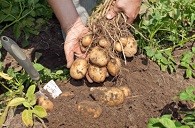 5
Tips For Growing Your Favorite PotatoesIf
you are new to growing potatoes, or are looking for ways to improve
your current crops consider these 5 tips...
5
Tips For Growing Your Favorite PotatoesIf
you are new to growing potatoes, or are looking for ways to improve
your current crops consider these 5 tips...
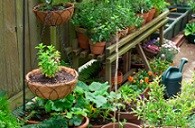 Growing
Vegetables In ContainersIf you
have limited gardening space, or only have room to garden on your
patio or balcony consider gardening...
Growing
Vegetables In ContainersIf you
have limited gardening space, or only have room to garden on your
patio or balcony consider gardening...


